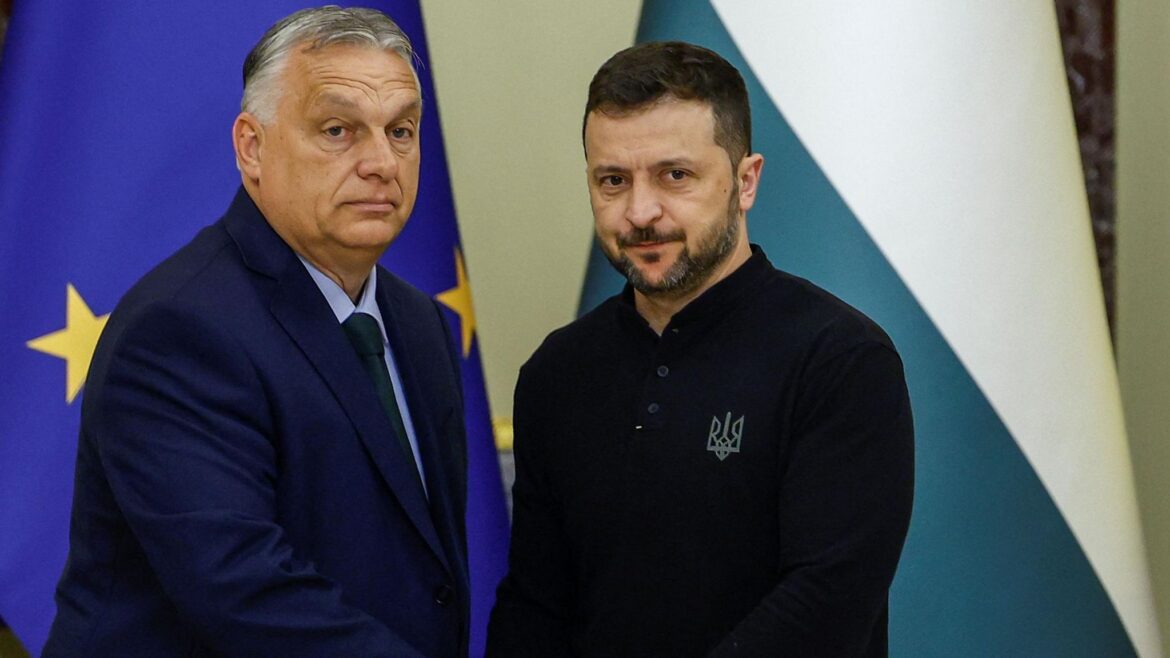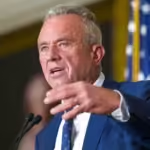“I have asked the president to consider whether… a quick ceasefire could be used to speed up peace negotiations… I am grateful for his frank dialogue and his answers.”
Mr Orban also said: “My first trip has taken me here because the issue of peace is important not only for Ukraine, but for the whole of Europe. This war that you are suffering is deeply impacting European security.”
President Zelensky did not publicly respond to those comments.
Later, in a post on X, the Ukrainian leader said Mr Orban’s visit to Ukraine was a “clear signal to all of us of the importance of unity in Europe and taking collective steps”.
“We discussed the path to a just, lasting, and fair peace.”
Many Ukrainians believe a ceasefire would simply cement Russia’s hold over territory it has taken from Ukraine and, if negotiations were to take place, they would prefer them to be conducted from a position of strength rather than on the back foot.
Ukraine’s Foreign Minister Dmytro Kuleba said his country was open to “work with everyone and solve problems”.
“This work is difficult and time-consuming, but it eventually yields tangible results,” he told the BBC.
“During the visit, President Zelensky had a candid but constructive discussion with Prime Minister Orban about ways to achieve a just peace, not simply a ceasefire or peace talks.”
The two leaders also discussed bilateral issues including the 100,000 ethnic Hungarians who reside in Ukraine.
Mr Orban said the two countries were determined to put past disagreements behind them, and that he was reassured progress was being made on the rights of the ethnic Hungarians.
He also wished Ukraine “every success”.
The EU opened membership talks for Ukraine the week before Hungary assumed the EU Council Presidency.


